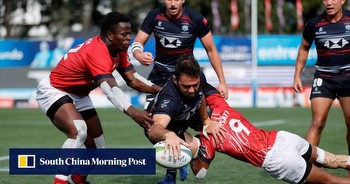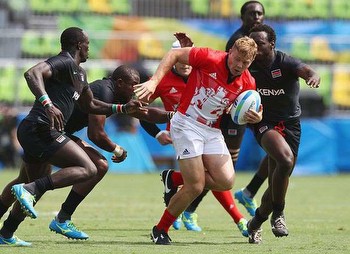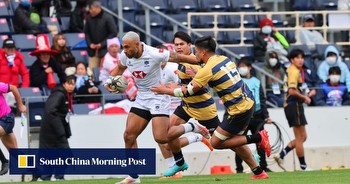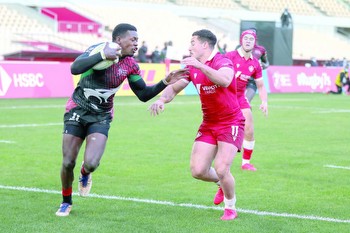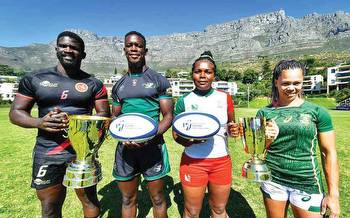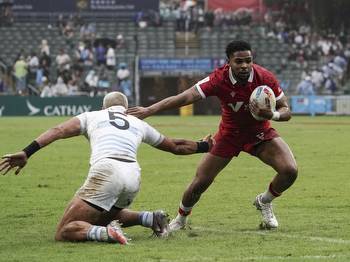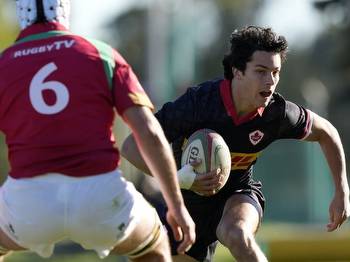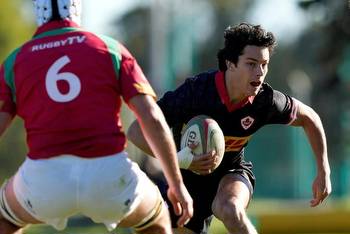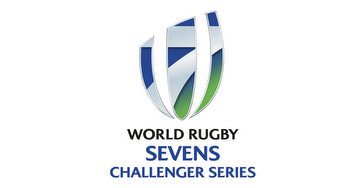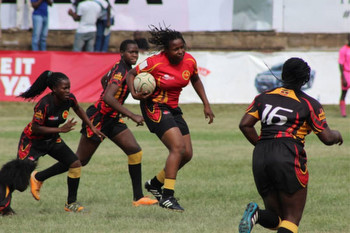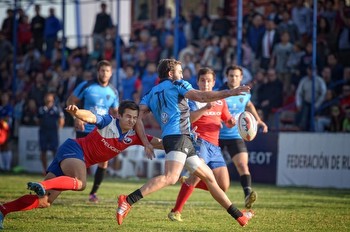Promotion/Relegation An Issue With Postponed World Rugby Sevens Series Tournaments

Both the Singapore Sevens and the Hong Kong Sevens are postponed due to the outbreak of coronavirus. They will take place from October 10-11 and October 16-18 respectively. This means there is now a huge break in the World Rugby Sevens Series schedule. The women play their next tournament in Langford, Canada, May 2-3. The men next play in London May 23-24. This causes one other issue that is sorely overlooked: what will happen with the team that relegates from core status and who gets promoted?
Normally, the Sevens Series qualifier tournament is played as a part of the Hong Kong tournament. For the women, that has now changed. Their only challenger trophy tournament, in Stellenbosch, South Africa, will function as a qualifier. This will go ahead as planned March 28-29. For the men, there is a serious problem.
This problem might not be the relegation. After another atrocious showing in Vancouver, Wales must fear for their core status. They currently languish in 15th place. They only have invitational sides Japan and South Korea below them. Spain is 20 points ahead of them and seemed like they were flying in Vancouver. Spain also played well the week before, in Los Angeles, California.
Wales has four tournaments to close that gap. To do that, they need to get at least five points more than Spain from each tournament. That means they would have to make the quarterfinals every tournament, with Spain ending 12th or lower on the ladder each time. Somehow, those odds seem very long.
However, there is something that might save Wales. It could be the situation for the side promoted to core team is impossible. The big issues with sevens at a high level is that it requires two things: money and planning. The team moving up might not be able to deal with these requirements now.
The Dubai tournament, the first tournament of the series, is from November 26-28. If the qualifier is still in Hong Kong, that would leave the promoted team with only six weeks to plan the next tournament. This might not sound like a problem, but the logistics cannot be underestimated. Hotel rooms have to be arranged. Transport, not just for players, but for the gear, is an issue. If that team is not fully professional, it also means the players would have to get leave on short notice.
And besides jobs, there is the financial situation of the union and team. Would they even be able to deal with that?
Some of the top finishers of the two challenger trophy tournaments might struggle. Chile and Uruguay both have semi-professional and amateur players. The unions have little money. Japan and Hong Kong would probably not have a problem at all. In contrast, though, the German team would have a big problem were they to be promoted. Unbeknownst to the wider rugby world, the Deutscher Rugby-verband, is in serious financial problems.
After an amazing 2018-2019 season, the German women’s XV was withdrawn from all competition. So was the U18 and U20. This because sponsor Capri-Sun withdrew from sponsoring the men’s XV, who relegated from the Rugby Europe Championship. That same team is now looking at relegation from the Rugby Europe Trophy as well. Recently, the DRV demanded higher contributions from members to avoid bankruptcy. The clubs in Hamburg, along with some others, refused this. They feel the focus should be on development rather than the elite teams.
The Germans then, are in much the same boat as Chile and Uruguay there. They would need a serious sponsor to fund a World Series campaign and six weeks is a short period in which to find one. Of course, World Rugby might intervene and provide funding. That would save Chile and Uruguay, but not Germany if the union does not have a grip on its finances.
Yet, for Wales, this might provide relief. If the team that wins the qualifier cannot make it to tournaments, then they might well find themselves retaining their core status, if not in name, then in practice.
